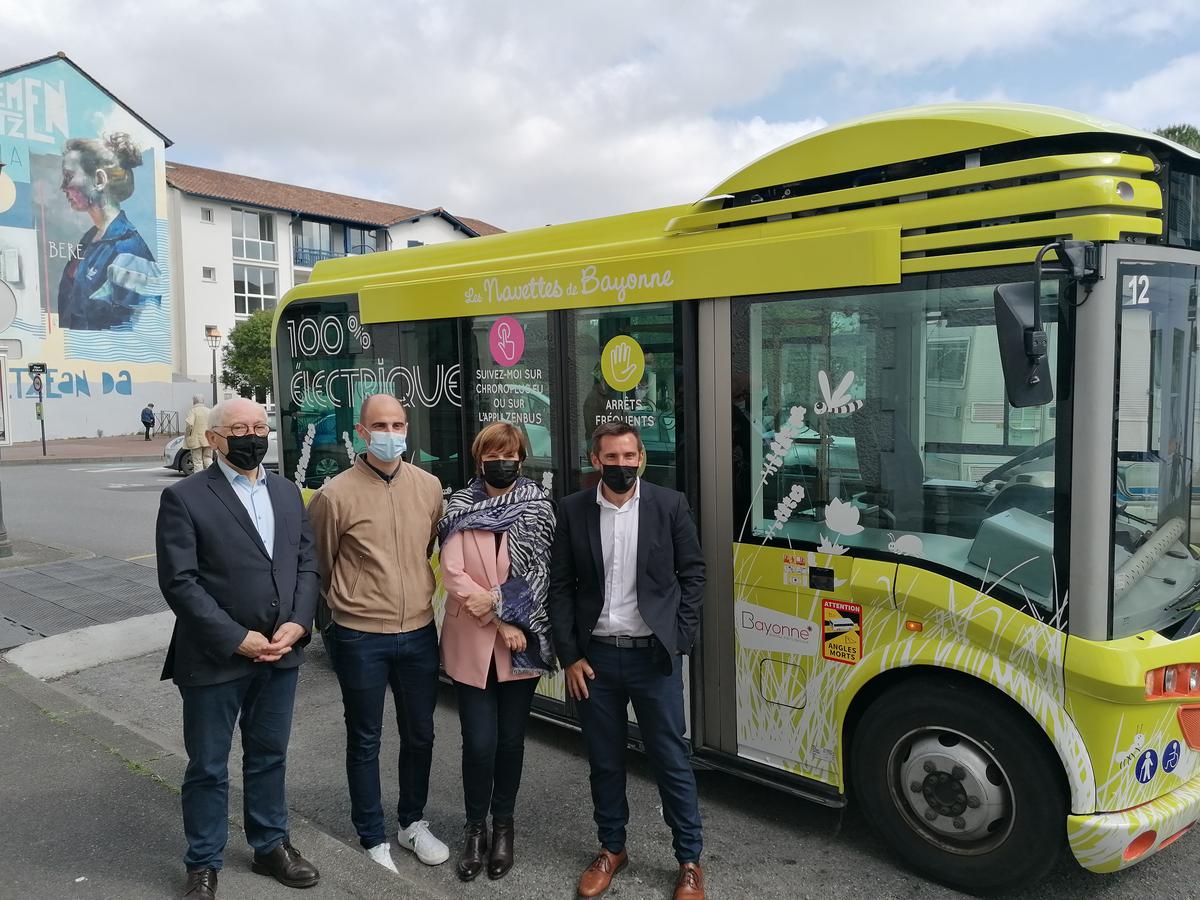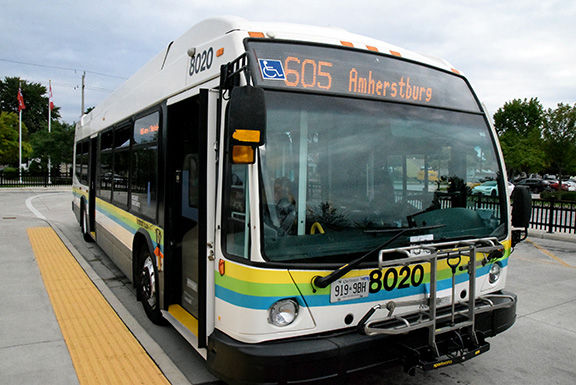Increased Opposition From Car Dealers To Government EV Mandates

Table of Contents
Financial Concerns and Infrastructure Readiness
The transition to an EV-centric market demands substantial investments from car dealerships, creating significant financial burdens. These costs are impacting both large and small dealerships, fueling opposition to government mandates.
High Upfront Investment Costs for EV Infrastructure
Adapting dealerships to effectively sell and service EVs requires significant capital expenditure. This includes:
- Charging station installation: The cost of installing Level 2 and DC fast chargers can range from several thousand to tens of thousands of dollars per station, depending on the number of charging points and power requirements.
- Technician training: EVs require specialized training for mechanics to diagnose and repair complex battery systems, electric motors, and other components. This involves costly training programs and certifications.
- Service bay upgrades: Dealerships may need to modify their service bays to accommodate the unique servicing needs of EVs, including specialized tools and equipment.
- Inventory adjustments: Dealerships need to invest in new storage facilities to handle EV batteries, which require specific safety protocols.
Many smaller dealerships lack the financial resources to undertake these upgrades, especially without sufficient government support. The lack of readily available financial assistance programs exacerbates the financial strain, making it difficult to comply with government EV mandates.
Lower Profit Margins on EV Sales
Current business models for EV sales often result in lower profit margins for dealerships compared to traditional gasoline vehicles. This is largely due to:
- Manufacturer pricing strategies: Manufacturers may set lower prices for EVs, impacting the dealer's profit margin on each sale.
- Reduced service revenue: EVs generally require less frequent maintenance than gasoline cars, leading to a reduction in lucrative service revenue streams for dealerships.
- Increased competition: The EV market is becoming increasingly competitive, leading to potential price wars and further compression of profit margins.
This decreased profitability directly threatens the economic sustainability of many dealerships, particularly those heavily reliant on service revenue.
Uncertainty Around Consumer Demand and Market Volatility
The unpredictable nature of EV market adoption presents significant challenges for dealerships in terms of inventory management and investment decisions.
- Fluctuations in EV demand: Demand for EVs can fluctuate significantly depending on factors such as government incentives, fuel prices, and technological advancements.
- Risks associated with overstocking EVs: Overstocking EVs due to unpredictable demand can lead to significant financial losses for dealerships.
- Challenges of forecasting future sales: Accurate forecasting of future EV sales is challenging due to the volatility of the market and the evolving consumer preferences.
This uncertainty makes it difficult for dealerships to justify the substantial investments needed to adapt to the EV market without assurances of consistent consumer demand.
Challenges in Sales and Servicing
Beyond the financial hurdles, dealerships face significant operational challenges in selling and servicing EVs.
Lack of Consumer Understanding and Familiarity with EVs
Many consumers remain hesitant about adopting EVs due to a lack of understanding regarding technology, charging infrastructure, and ownership costs. This necessitates extensive consumer education efforts:
- Addressing consumer concerns: Dealerships need to effectively address consumer concerns about range anxiety, charging times, battery lifespan, and overall cost of ownership.
- Improved consumer education campaigns: Collaboration between dealerships, manufacturers, and the government is crucial for effective consumer education campaigns.
Overcoming these consumer anxieties is crucial for driving EV adoption and reducing the risk for dealerships investing heavily in EV infrastructure.
Shortage of Skilled Technicians for EV Repair and Maintenance
The repair and maintenance of EVs require specialized knowledge and skills, leading to a significant shortage of qualified technicians. This shortage presents several challenges:
- Training costs: Training existing technicians on EV repair is expensive and time-consuming.
- Lack of qualified technicians: There is a significant lack of qualified technicians with the specific skills needed to service EVs.
- Potential delays in service appointments: The shortage of skilled technicians can lead to delays in service appointments, potentially impacting customer satisfaction.
Addressing this skills gap through government-funded training programs is essential for ensuring the efficient servicing of EVs.
Inventory Management Complexities Due to EV Production Limitations
Current production limitations and supply chain issues create significant challenges in managing EV inventory. This results in:
- Difficulty in meeting consumer demand: Manufacturers are struggling to keep up with the growing demand for EVs, leading to difficulties for dealerships in meeting consumer needs.
- Logistical challenges: The complexities of EV production and shipping add to the logistical challenges faced by dealerships.
- Impact on dealership operations: Inventory shortages can negatively impact dealership operations, leading to lost sales and customer dissatisfaction.
Improved collaboration between manufacturers and dealerships is crucial to optimizing EV inventory management and addressing supply chain issues.
Government Policy Concerns and Proposed Solutions
The concerns expressed by car dealerships are not solely about the transition itself, but also about the implementation and support provided by government policy.
Lack of Clear and Consistent Government Support
Inconsistencies and gaps in government policies designed to support EV adoption are a major source of frustration for dealerships. This includes:
- Criticism of specific policy measures: Dealerships often criticize the specifics of certain policies, arguing that they are insufficient, unrealistic, or poorly designed.
- Suggestions for improved policy clarity and support: Dealerships advocate for clearer, more consistent, and more supportive government policies that incentivize EV adoption while addressing their concerns.
Clear and consistent government policies are critical to providing a stable and predictable environment for dealerships to make significant investments in the EV market.
Concerns About the Speed and Scope of the Mandates
Dealerships argue that the rapid pace of mandated EV transitions is unrealistic and potentially disruptive to the market. They advocate for:
- Phased implementation suggestions: A phased implementation approach would allow dealerships to gradually adapt to the changes and mitigate risks associated with rapid transitions.
- The need for realistic targets: Mandates should set realistic targets based on market readiness and consumer demand.
- Concerns about market disruption: Rapid transitions can create market disruption, leading to economic instability for dealerships.
A balanced approach that considers the industry's capacity to adapt is essential for a smooth transition.
Call for Collaborative Approaches Between Government and Dealerships
Effective collaboration between government and dealerships is crucial for a successful transition. This necessitates:
- Incentive programs for dealerships: Government incentive programs can provide financial support for dealerships to invest in EV infrastructure and training.
- Government-funded training initiatives: Government-funded training programs can help address the shortage of skilled technicians.
- Collaboration on consumer education programs: Joint efforts on consumer education can help overcome consumer hesitancy towards EVs.
By working together, governments and dealerships can create a supportive environment that fosters EV adoption while mitigating the risks and concerns faced by the automotive industry.
Conclusion
The increasing opposition to government EV mandates from car dealerships underscores the complex challenges inherent in the transition to an electric vehicle-dominated market. Financial burdens related to infrastructure upgrades, lower profit margins on EV sales, and the unpredictability of consumer demand are significant obstacles. Furthermore, the shortage of skilled technicians and the rapid pace of mandated EV adoption add to the concerns. To ensure a successful and equitable transition, governments must work collaboratively with dealerships, providing clear, consistent, and supportive policies, including financial incentives, training programs, and consumer education initiatives. Understand the opposition to government EV mandates; learn more about the challenges facing car dealerships in the EV transition, and get involved in the debate surrounding government EV mandates. Only through a balanced approach that considers the valid concerns of the automotive industry can we pave the way for a sustainable and successful future for electric vehicles.

Featured Posts
-
 Rashford Scores Twice As Manchester United Rout Aston Villa In Fa Cup
May 21, 2025
Rashford Scores Twice As Manchester United Rout Aston Villa In Fa Cup
May 21, 2025 -
 Une Nouvelle Navette Gratuite Entre La Haye Fouassiere Et Haute Goulaine Test En Cours
May 21, 2025
Une Nouvelle Navette Gratuite Entre La Haye Fouassiere Et Haute Goulaine Test En Cours
May 21, 2025 -
 Le Noumatrouff Et Le Hellfest Un Evenement Musical A Mulhouse
May 21, 2025
Le Noumatrouff Et Le Hellfest Un Evenement Musical A Mulhouse
May 21, 2025 -
 Nj Transit Strike Averted Engineers Union Reaches Tentative Agreement
May 21, 2025
Nj Transit Strike Averted Engineers Union Reaches Tentative Agreement
May 21, 2025 -
 Nyt Mini Crossword April 20 2025 Solutions And Clues
May 21, 2025
Nyt Mini Crossword April 20 2025 Solutions And Clues
May 21, 2025
Latest Posts
-
 The Impact Of Recent Performance On Giorgos Giakoumakis Mls Valuation
May 21, 2025
The Impact Of Recent Performance On Giorgos Giakoumakis Mls Valuation
May 21, 2025 -
 Patra Odigos Efimerion Iatron Gia To Savvatokyriako
May 21, 2025
Patra Odigos Efimerion Iatron Gia To Savvatokyriako
May 21, 2025 -
 Assessing Giorgos Giakoumakis Transfer Prospects An Mls Perspective
May 21, 2025
Assessing Giorgos Giakoumakis Transfer Prospects An Mls Perspective
May 21, 2025 -
 Efimereyontes Iatroi Stin Patra Savvatokyriako And Argies
May 21, 2025
Efimereyontes Iatroi Stin Patra Savvatokyriako And Argies
May 21, 2025 -
 Patra Breite Ton Efimereyonta Iatro Sas Ayto To Savvatokyriako
May 21, 2025
Patra Breite Ton Efimereyonta Iatro Sas Ayto To Savvatokyriako
May 21, 2025
